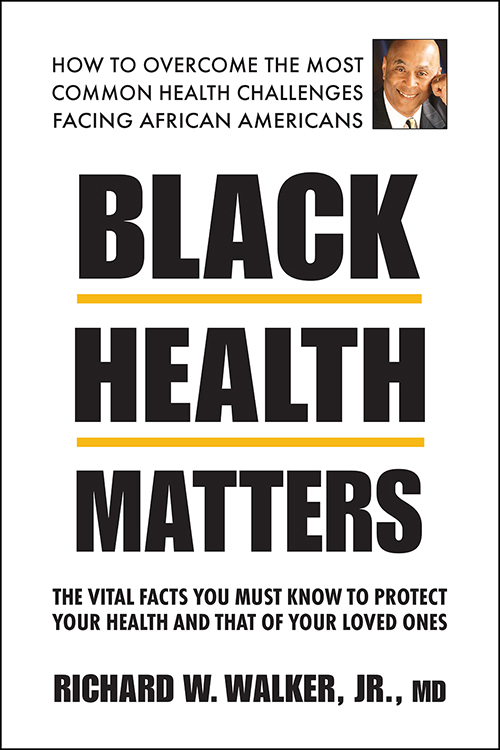It is easy enough to say “black health matters.” But when we go by the numbers, the extent of poor health among our Black population becomes painfully evident. According to the Centers for Disease Control (CDC), health disparities continue to exist due to poverty, unequal access to care, and unequal representation in medical research. That painful truth was evident to Martin Luther King, Jr., when he said, “Of all the forms of inequality, injustice in health is the most shocking and the most inhuman because it often results in physical death.” And this inequality goes back hundreds of years.
BLACK HEALTHCARE VERSUS WHITE HEALTHCARE
Throughout American history, healthcare for White Americans has always been shamefully better than that for Black Americans, contributing to a greater number of Blacks with chronic illness and early deaths. If you take the same chronic diseases that White Americans die from as seniors, you will find Black Americans dying of these conditions in their twenties, thirties, and forties. Unfortunately, there are many reasons for this.
Cost
Since costs and/or the lack of health insurance determines if you see a doctor early and often, it is, without a doubt, a major contributor to the problem now faced by African Americans. First, let’s look at the inequality in healthcare insurance. Coverage by health insurance for Blacks at all ages has been persistently lower than that for Whites. Many hourly jobs that Blacks hold do not include health insurance, and lack of coverage is a barrier for receiving health services.
After the Affordable Care Act (ACA) was passed in 2014, more Black Americans had insurance coverage. However, 30 million people, half of them persons of color, remained uninsured in the United States. Fourteen states, mostly in the South, refused to expand Medicaid, depriving many Blacks of coverage.
The Lack of Local Medical Facilities
In some cases, adequate medical facilities may be far away from Black communities, especially in rural areas. The harsh reality is that many medical care centers and doctors’ offices avoid opening in poorer communities because of economic reasons or perceived safety concerns. While this great divide of medical care may not have been based on racism, it has prevented poorer communities from getting essential services.
Keeping Appointments
For Black hourly workers, keeping a healthcare appointment during a workday is often discouraged or even disallowed by many employers. This is due to the long time it takes to see a doctor. In fact, the average wait time for Black folks is roughly seventy minutes versus fifty-three minutes for Whites. Try explaining that to an employer when you are two hours late. Too often, the result of these negative experiences is to simply avoid seeing a physician.
What occurs is a snowballing effect. The delay in seeing the doctor allows the health condition to get worse, which means more time needed for follow-up appointments, which means more work absences. Meanwhile, the cost of the care increases due to the frequency of visits and more medications. This, in turn, means there may not be enough money to pay the extra costs involved.
Poorer Quality of Health Care
Black people are simply not receiving the fair and impartial healthcare that their White counterparts receive. The American Bar Association has reported that minority persons are less likely than White persons to receive appropriate cardiac care; kidney dialysis or transplants; and the best treatments for stroke, cancer, or AIDS.
Higher Incidence of Chronic Disease
Blacks are at much higher risk for many chronic diseases, yet their ability to have them monitored is far less than Whites. For example, hypertension affects 75 percent of Blacks compared with 55 percent of White men and 40 percent of White women. For the Black community to receive help with this common disorder, their hypertension must be diagnosed early, and their blood pressure monitored regularly. If they receive this diagnosis, their doctor may prescribe blood pressure medicine that effectively lowers blood pressure. But patients must understand that they can dramatically lower their blood pressure by lowering their salt intake, losing weight, and exercising. These lifestyle changes rest on the patient’s shoulders. Like hypertension, obesity and type 2 diabetes also affect many more Blacks than Whites.
Poor Diets
Poor diet—due to bad food choices, poverty, and unhealthy eating traditions (sorry)—are major contributing factors in all the chronic diseases that plague Blacks. While processed foods that are high in sugars, “bad” fats, and salt may taste good, they lack basic nutrients—the very cause of so many common illnesses. Some Blacks cannot afford healthier foods. But if you don’t feed your body well, over time, you are likely to develop a chronic illness.
LIVING HEALTHIER
The good news is that if you adopt a healthier lifestyle, you may be able to lessen or eliminate the need for chronic healthcare interventions such as medications. Let’s be clear about what I mean: I am not saying that you should avoid seeing your physician, getting annual exams, and taking prescribed medications. To the contrary, it’s essential to get annual checkups and follow your doctor’s advice. However, it’s also important to stop doing those things that are drivers of ill health. Type 2 diabetes doesn’t have to be. Severe hypertension doesn’t have to be. Most of all, being overweight or obese doesn’t have to be.
There are basic actions you should take to ensure that your body becomes as healthy as God meant it to be! Eat a nutritious diet that provides the proper amounts of protein, carbohydrates, fiber, “good” fats, and, perhaps, supplements of vitamins, minerals, and other nutrients, depending on your unique health needs. You will also need to exercise and get adequate sleep.
To achieve good health, you must also change some harmful behaviors. If you are overweight or obese, you need to eat less. Avoid processed foods that are loaded with white flour, too many calories, too much salt, excessive sugar and corn syrup, “bad” fats, and artificial chemicals.
If you smoke, you must stop. You already know that, and on numerous occasions, you may have promised yourself and others to kick the habit. This time, you need to follow through.
You must take advantage of today’s technology to learn as much as you can about your health and how to change it. Then you need to act on that knowledge. The continued belief that change is just too difficult will keep you from reaching your goal of better health and a better life.
Black Health Matters is designed to help every Black person achieve better health, just as I have successfully guided my own patients to greater well-being during my many years as a practicing physician. By following the advice offered in my book, you can turn your life around, feel better—perhaps better than you have in a long time—and enjoy many happy, healthy years to come.
BYLINE: Richard W. Walker, Jr., MD, received his medical degree from the Albert Einstein College of Medicine in New York, and completed his residency at the University of Michigan. He has served on the faculty of the University of Texas Medical Center, and is the founder and medical director of Walker Health Care Holdings and TVP-Care, PC, Houston-based healthcare companies. In addition to being a published writer, Dr. Walker is a highly sought-after speaker.
* * * * * * * *
Adapted excerpt from Black Health Matters by Richard W. Walker, Jr., MD © 2021. Used by permission of Square One Publishers, Inc. www.squareonepublishers.com



